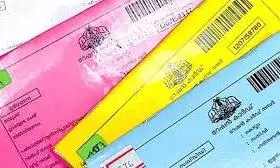
PDS unification reforms to backfire on Kerala
text_fieldsThe Kerala Government has forsaken the state's Public Distribution Scheme for food to the Centre, to comply with the Central Government's ultimatum. The public distribution of ration, which was being carried out in a fairly efficient manner by the state, is being shifted under the unified system of the Centre. Concerns have been raised that by aligning all social welfare schemes and government benefits to uniform norms, the unique interests and priorities of the state will be subverted. In fact, Kerala did not agree to the central plan for so long because this concern could not be resolved. However, when the Union Food Ministry threatened that the state would have to directly bear the ration cost of one crore and fifty lakh people belonging to the priority category in Kerala if they were not ready to cooperate, the government had no choice but to give in.
Also read: BJP won’t open account in Kerala in LS elections: local exit polls
Union Minister of Consumer Affairs, Food and Public Distribution, Piyush Goyal had requested in a meeting of state food ministers on March 2 last year for all states to come on board with the SMART PDS scheme, a process to modernize and reform the food public distribution scheme through technology. The explanation given by the Minister was that the program was to bring all the ration consumers in the country to a transparent and reliable system by reducing human intervention and implementing automation. It is also supposed to prevent the pilferage of food grains and increase the efficiency of the supply chain. It was also announced that this scheme is also aimed at providing free food grains to the migrants to different parts of the country. The Centre finds that the lack of reliable and proactive data on people's consumption patterns and shifts poses a challenge to the effective delivery of critical central welfare schemes. By placing food public distribution under the SMART PDS scheme, the Centre estimates that this data can be used for the implementation of other central welfare schemes too. The public distribTution system is standardized with the help of technology. If it is linked with the Food Corporation of India, Central Warehousing Corporation, the distribution sector through rail-road, the Ministry of Education, and the Ministry of Women and Child Development, food distribution can be implemented scientifically without delay or disruption.
Also read: PIL calls use of Hindi, Sanskrit in new Laws ‘linguistic imperialism’ in Kerala HC
he implementation of the One Nation One Ration Card-ONORC scheme is a part of this. By linking the ration card with Aadhaar, the distribution of ration is being arranged through an electronic point of sale (e-POS) system. Complete digitization of ration cards, online management of consumer data, computerization of foodgrain allocation, and supply chain management covering all states/UTs have been streamlined using this system. The fact that all these claims were not completely materialize when they reached the practical level was proved by the situation in Kerala last March when the e-POS went on strike and had to stop the distribution of rations. This is not a new experience. The Odisha government had suspended the e-pos system during the Covid outbreak. There was an incident in Tamil Nadu where the system was subjected to a cyber attack and personal information including addresses of 31 million people was leaked. In short, the system was prepared without any room for direct human intervention and showed all kinds of technical errors. Likewise, those who point out its flaws say that tens of thousands of poor people who are yet to enter the world of Aadhaar and digital technology will be excluded from this system.
Also read: Kerala Governor returns ordinance to increase 1,200 wards: report
However, Kerala is concerned about something else. It is pointed out that with the consolidation and digitization of the public distribution system, Kerala will lose its due share. With the unification of priority criteria in ration distribution, a large part of Kerala, which is leading in the standard of living, will be excluded. Other government and welfare schemes are also going to use the same data. Kerala's loss during restructuring is not mere ration. If a uniform system is implemented for central assistance and without considering the special circumstances of the states, the share of developed Kerala will be cut down there as well. With that, the implementation of various welfare schemes of the state government, which is supported by central assistance, will be in jeopardy. Thus, all the supposed benefits of the project are turning out to be bad for Kerala. It should be assumed that this reform brought in the name of transparency and efficiency will collect all the data from the states, but increase difficulties one by one.
Also read: Governor Khan’s nominations to University of Kerala senate quashed by Kerala HC























